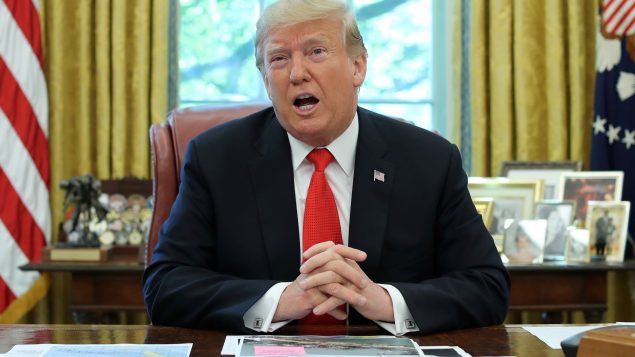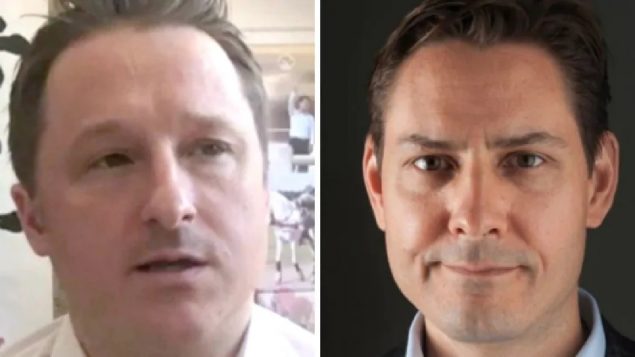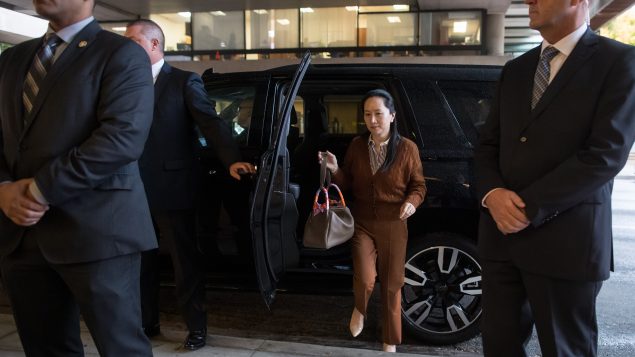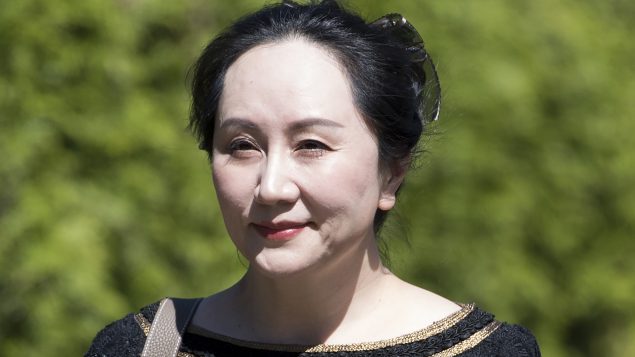Lawyers for Meng Wanzhou are asking a Canadian court to stay extradition proceedings against the top Huawei executive, claiming U.S. President Donald Trump has “poisoned” the judicial process and undermined its integrity and fairness.
In court documents filed in the British Columbia Supreme Court, Meng’s defence team cites “shocking and corrosive” statements by Trump showing his desire to use Meng “as a bargaining chip in a trade dispute” with China and the president’s history of intervening in other high-profile criminal cases.
Meng was arrested on Dec. 1, 2018 at the Vancouver International Airport on a warrant from the United States.
She is accused by U.S. authorities of bank fraud for allegedly misleading HSBC about Huawei’s relationship with a company operating in Iran, putting HSBC at risk of fines and penalties for breaking U.S. sanctions on Tehran.
‘A bargaining chip in trade negotiations’

- U.S. President Donald Trump talks to reporters in the Oval Office of the White House in Washington, U.S., Sept. 4, 2019. (Jonathan Ernst/REUTERS)
Soon after Meng’s arrest, Trump said in an interview with Reuters he would intervene in Meng’s case if it helped him secure a better trade deal with Beijing.
The lawyers called Trump’s comments “offensive and ominous” and “made all the more intimidating due to his history of interference in other recent high-profile criminal prosecutions,” citing Trump’s commutation of the sentence of longtime friend and associate Roger Stone, among others.
Meng’s defence team also noted Prime Minister Justin Trudeau’s comments about two Canadians detained in China in apparent retaliation for Meng’s arrest.
Former Canadian diplomat Michael Kovrig and entrepreneur Michael Spavor – who’ve come to be known as the Two Michaels – were arrested separately nine days after Canadian authorities arrested Meng.

Michael Spavor, left, and former Canadian diplomat Michael Kovrig, right, have spent more than 560 days in Chinese prisons in harsh conditions, and have not been allowed consular visits since January officials indicate. (The Associated Press/International Crisis Group/The Canadian Press)
In December of 2019, Trudeau said “that the United States should not sign a final and complete agreement with China that does not settle the question of Meng Wanzhou and the two Canadians,” Meng’s defence team said.
“The clear implication of these comments is that the prime minister has communicated to the requesting state that he supports its use of the applicant’s case as a bargaining chip in trade negotiations,” Meng’s defence argues. “The prime minister’s statements reinforce how the applicant is caught in a geopolitical battle, not the slightest bit dependent on the merits of her criminal case.”
‘Poisoned proceedings’

Huawei chief financial officer Meng Wanzhou, who is out on bail and remains under partial house arrest after she was detained last year at the behest of American authorities, arrives at B.C. Supreme Court to attend a hearing, in Vancouver, on Thursday Oct. 3, 2019. (Darryl Dyck/THE CANADIAN PRESS)
The lawyers claim Meng, 48, has been left in the impossible position of fearing that any attempt to defend herself may affect either the Chinese economy or the lives of two men.
“These proceedings have been poisoned,” Meng’s lawyers claimed in a 28-page legal brief outlining their arguments.
“They can no longer be reasonably regarded as fair, regardless of the undoubted good faith of the court.”
Meng’s lawyers also allege that the United States misled Canada about the evidence in the case against her, by “selectively summariz(ing) information … and omit(ting) highly relevant information” about the knowledge that Huawei shared with HSBC about its operations in Iran.
The omissions are “far below the expected standard of diligence, candor and accuracy,” the lawyers wrote.
With files from Jason Proctor of CBC News and Reuters







For reasons beyond our control, and for an undetermined period of time, our comment section is now closed. However, our social networks remain open to your contributions.